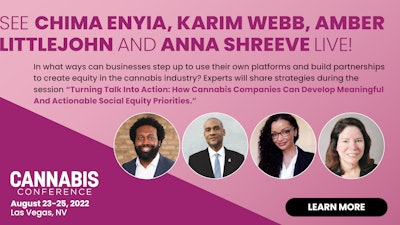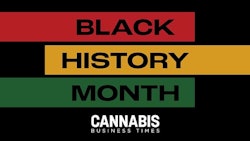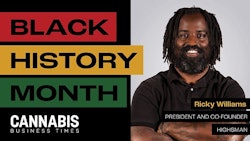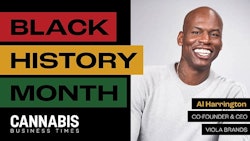
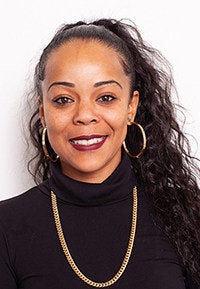
Editor’s Note: Los Angeles-based Sixty Four & Hope represents one of the earliest operating social equity cannabis businesses. What follows is a reflective discussion between Aja Allen, owner-operator of Sixty Four & Hope’s Mid-City location, and Rhavin L, owner-operator of Sixty Four & Hope’s Melrose District location.
Aja Allen: We started our social equity journey three years ago. When I first heard about social equity, I thought it was just about money—righting the wrongs of the war on drugs, pseudo reparations. But when I dug deeper, I realized it was about more than money.
Along with roughly 700 other people from South LA, Rhavin and I attended an information session hosted by our now parent company, 4thMVMT. The company's CEO, Karim Webb, explained the program to us and laid out the opportunity social equity provided and what it could mean for our community.
Not only was this an opportunity for us to become entrepreneurs, but it was fair. It was moral. It was integrity. The potential income of owning our own business could change the trajectory of our lives and the lives of our family and community. But it's so much more than just money. I had heard of Karim through his work with the California Community Foundation and his Buffalo Wild Wings. It was the first sports bar we've ever had at Crenshaw and MLK Blvd., which was a big deal for our community. So instantly, I was comfortable; it felt right. Social equity, for me, is fairness. It's equality; it's all of it. And I knew this was something I wanted to be involved in.

Rhavin L: Yeah, I felt the same way. I didn't know Aja at the time, but I knew a few other people who attended the information session. I have always been a smoker, but it was about starting a business for me. It was about being able to support my family, and to help my community and relatives locked up for something as small as an eighth. It's ridiculous, especially when you have large multi-state operators making millions while people remain in jail. I've always wanted to live that saying, “be the change you want to see in the world,” and this is one way I can do that. It's important that I am contributing to the hope this industry provides.
RELATED: Sixty-Four & Hope to Open Second LA Location
AA: But it certainly has not been an easy three years. The waiting was the most challenging part of this process for me. We were kept in the dark by the city. They'd set deadlines but never meet them. I essentially put my life on hold for this chance, so it was tough not knowing when it would happen. The application process was also complicated. And we had to have real estate attached to our applications, which means we were paying on commercial property for over a year without opening or generating revenue. It's a miracle we even made it to opening day.
RL: It felt like we received no help from the city. There was no communication, no resources that would assure success in this process. I can't help but feel bad for people trying to do this without support—those who don't have a parent company providing financial backing and resources. People took out second mortgages on their homes to keep their licenses, and they still aren't generating revenue.
AA: The city has since attempted to streamline the application process to ensure the program is successful, but we still contend with many things now that Rhavin and I have opened our stores. 280E taxes are rough. I'm not sure if the general public is aware, but as a cannabis business, you cannot write off expenses, we can't bank like a regular business, and the regulations are a moving target. The social equity program was challenging, and being open is even tougher, but we're determined to be successful. And luckily, we have a supportive community in 4thMVMT and among the other 19 owners of Sixty Four & Hope locations.
RL: Yeah, our fellow owner-operators have been incredibly supportive throughout this process. It has been hard to open the first two Sixty Four & Hope locations, but it's worth it. And I agree with Aja about how much of an impact our community and 4thMVMT have had. Without their financial backing, we likely wouldn't be open. We're in a unique position with our parent company; not all large, multi-state corporations are in this industry for the social equity aspect. They're here to make money, capitalizing off the backs of those who built this industry.
AA: That's why we have to make sure that we're reinvesting when we are successful. It's not just about getting the capital; it's about what we do with the money once we've got it.
Aja Allen is owner-operator of Sixty Four & Hope’s Mid-City location in Los Angeles.
Rhavin L is owner-operator of Sixty Four & Hope’s Melrose District location in Los Angeles.
